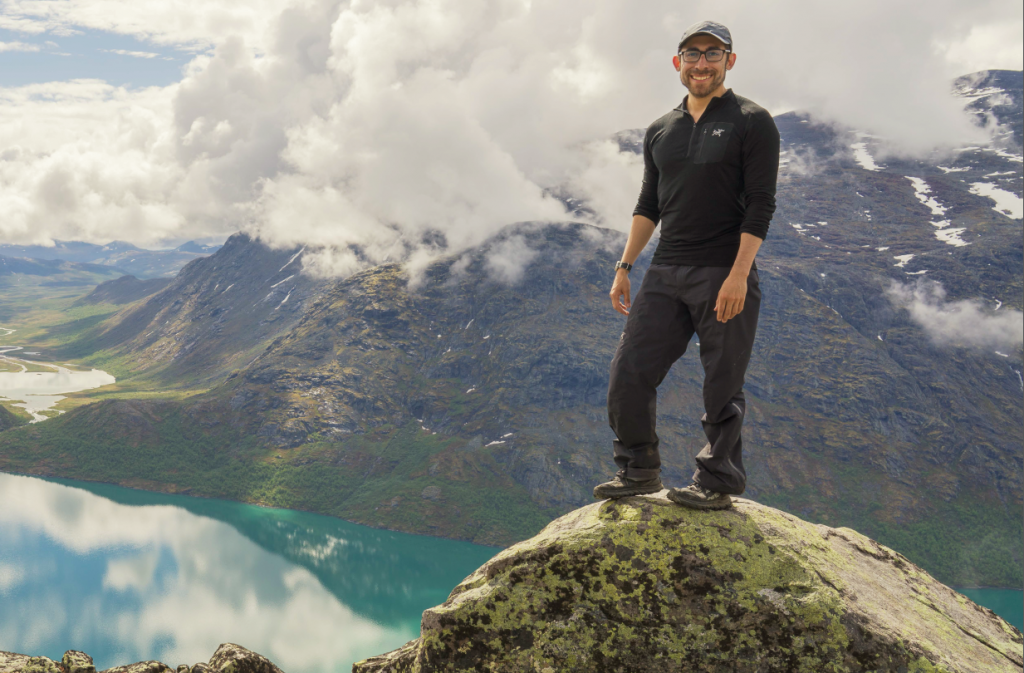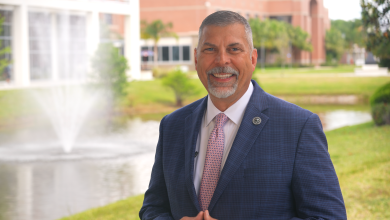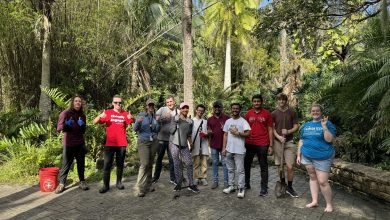From Florida Tech Student to Harvard Lecturer: 7 Questions Answered
By Stephanie R. Herndon ’07
Chris Tanner ’06, Ph.D., joined Harvard University as a lecturer this fall. He is teaching graduate and undergraduate data science and machine learning courses as well as advising master’s students on their capstone projects.
After earning his undergraduate degree at Florida Tech in computer science and applied mathematics, Chris completed his master’s degree at UCLA before joining the Massachusetts Institute of Technology Lincoln Lab for three years as an associate staff researcher. Most recently, Chris completed his Ph.D. in computer science at Brown University in May.
We caught up with Chris this summer as he prepared to start his new role at Harvard.

Q: How did your experience teaching at Brown impact your decision to stay in academia?
A: Brown gave me complete freedom to design and teach a class however I want. After being a student for so long, it was incredibly fun to be on the other side of the classroom and to craft materials and approaches to help others understand concepts that I found important. It was refreshing to know that every hour I poured into my slides tended to be fruitful and had immediate, direct impact on others. I loved the chance to educate highly interested, dedicated students who were passionate about a wide range of subjects outside of computer science. When the course ended, I didn’t want it to be over; I felt the need to continue teaching, so I decided to apply for lecturer positions! I was fortunate and flattered to have offers from MIT, Harvard, University of Washington and Brown. Unquestionably, I would have been happy at any of those places, and while they all felt great, I especially appreciated Harvard because of its small, caring department, the homey, communal vibes, the nature of the classes I’d teach and its geographic location. It felt right.
Q: You lived in the Boston area before you decided to pursue a Ph.D. in 2012. How does it feel to be back? What is your favorite thing about being back in the area?
A: Feels great! Boston (specifically, Cambridge) was always my dream city, and it’s refreshing to see all the growth that has occurred in recent years—so many hip, new places! I’m enjoying exploring as many as I can and running along the Charles River again.
Q: What will your data science and machine learning courses cover?
A: We’ll teach how to work with data from all sorts of disciplines, and students will write computer programs in Python to do so—from loading the data, cleaning it and processing it to performing advanced prediction tasks and analyses (using neural networks and deep learning). Past students have graduated and joined a wide range of companies, some focused on self-driving cars, others on social justice.
Q: What are you looking forward to most in this new position?
A: The challenge of creating an intimate, caring, personal learning environment for a classroom of 250 students. While it was quite easy to add humor and hip-hop references to a 27-person classroom, I doubt my jokes will easily scale.
Q: How has your undergraduate experience at Florida Tech impacted your career?
A: Florida Tech has invaluably provided the foundation of my career. It challenged me a lot, but its small class sizes and genuine care for teaching made it great. In particular, I found courses by Dr. Chan and Dr. Menezes to be really difficult but incredibly valuable, and elements of their teaching have influenced some of mine (e.g., pop quizzes, thoughtful discussions, requiring students to explain concepts to others). Further, Florida Tech’s diverse student body and the friendships I’ve formed have played an integral role in my personal and professional life—as we speak, I am now flying to visit Bryce Canyon with a classmate I met freshmen year.

Q: What advice do you have for others going into computer science?
While computer science and related engineering disciplines can be intimidating to students, I assert that it’s equally challenging as any other concentration, whether it’s one from the social sciences or humanities. Unlike the latter, where natural language (e.g., English) is the medium of exchanging ideas and communication, computer science relies on using a foreign language and syntax (e.g., programming and algorithms). This foreign medium alone is the main contributor for making it intimidating, but one just needs to be patient and become comfortable with uncertainty; one could be 99% of the way to a correct answer while it still appears like a dismal dead end, as computer programs and algorithms only work once everything is correct. It’s useful to get comfortable with the uncomfortable feeling of not understanding something for a while.
Q: Do you have any advice for making a career in academia?
Academia is mostly comprised of teaching and research, with different universities placing different emphasis on each ingredient. Unlike being a student, where there’s often a direct, clear path to well-accepted answers, teaching and research are riddled with uncertainty, exploration and pushing the boundaries on our current world knowledge. Success predicates upon collaborating with others, discussing ideas, reading a lot, experimenting, being completely unafraid of failing, having patience and just doing the best that you can. Even the world’s best researchers can spend months working on a research idea that goes nowhere. The challenges make it fun, and I encourage interested students to speak with their Florida Tech professors for more details about academic paths and careers.




